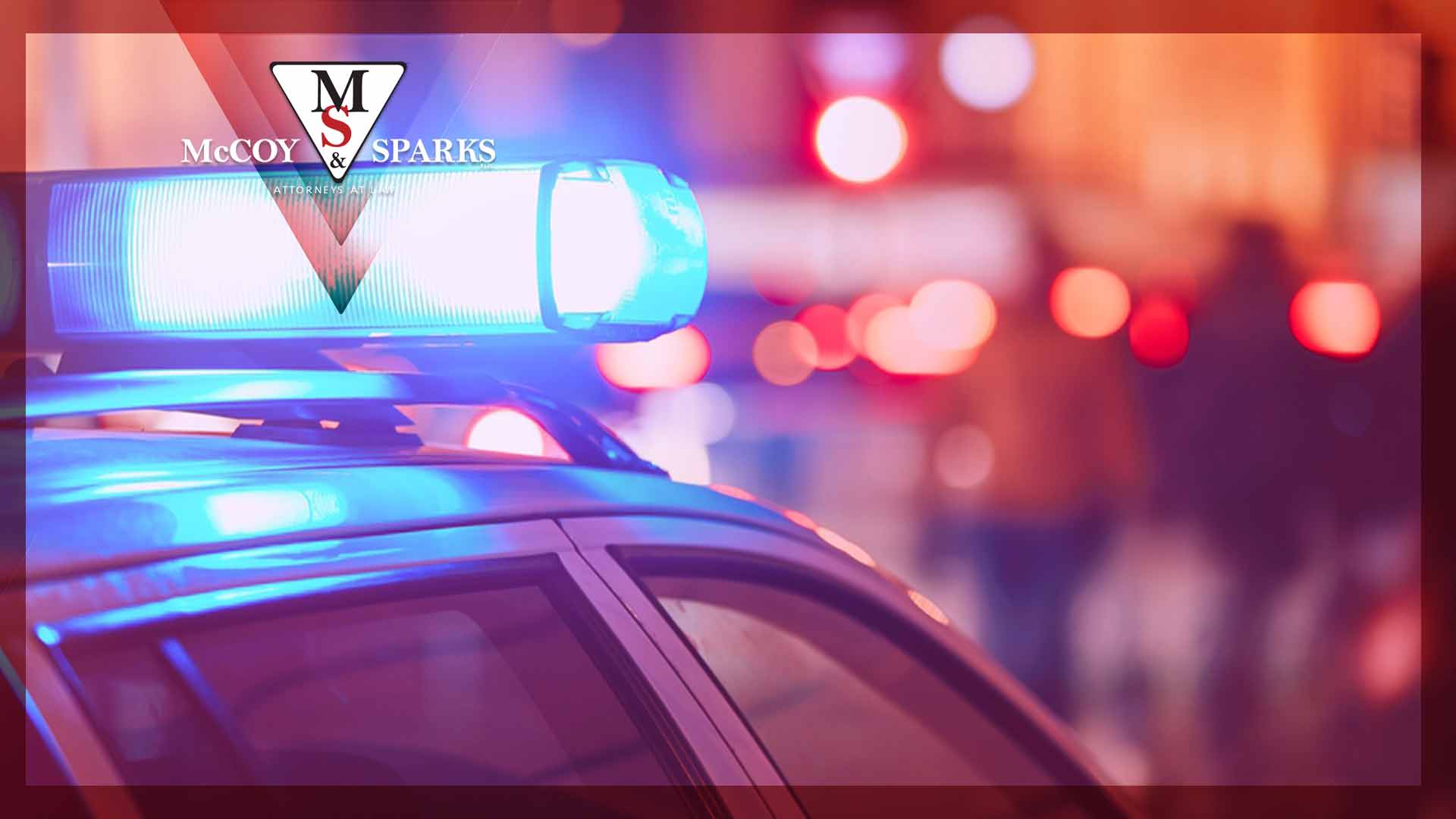
Recent high-profile incidents of police brutality, especially the stories of police killings of unarmed Black Americans like George Floyd and Tyre Nichols, have shone a spotlight on the mental health effects of police violence. Repeated exposure to these traumatic events, both directly and indirectly through news and social media, has led many to wonder if you can get PTSD from police brutality.
The short answer is yes. Not only can being the victim of violence at the hands of police lead to emotional trauma, but even witnessing police violence or killing secondhand can result in symptoms of post-traumatic stress disorder (PTSD).
What is Police Brutality?
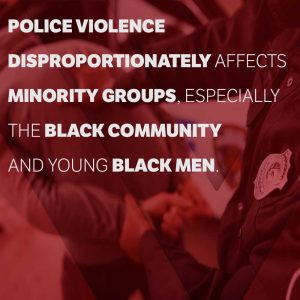
Police brutality refers to the intentional use of excessive force by police officers when interacting with civilians, whether being questioned or arrested. This includes both physical assault and psychological intimidation. Police violence disproportionately affects minority groups, especially the Black community and young Black men.
Even non-violent encounters with police can be traumatic. Victims are left feeling powerless and dehumanized, their personal safety taken by those supposedly sworn to “serve and protect.”
For the Black community and Black people in particular, the threat of police brutality has become an ever-present fear. Repeated traumatic exposure has even led to the identification of a race-based trauma condition called racial battle fatigue.
The Mental Health Impact of Police Violence
The mental health effects of police brutality can be severe and long-lasting. Being assaulted or victimized by authorities often results in shock, fear, grief, pain, anger, and feelings of injustice for all involved, including Black people.
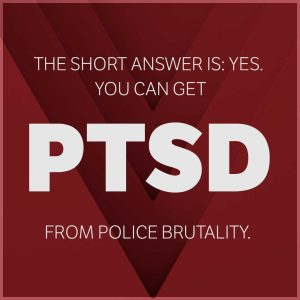
Research has shown victims of a violent encounter like this have high rates of emotional distress, anxiety, depression, PTSD symptoms, and other mental health challenges. Survivors describe persistent trauma around the event, such as flashbacks, nightmares, hypervigilance about personal safety, and avoiding anything associated with the trauma.
For young Black men, violent incidents with police can compound a lifetime of race-based discrimination and mistreatment from other institutions of the law as well. Repeated traumatic events lead to complex PTSD responses.
Additionally, even those who witness police brutality secondhand, whether in person or via graphic video footage on the news or social media, can experience emotional trauma. Assistant professor of health psychology at the University of Florida Linda Goler explains, “You don’t have to directly experience police violence to be affected by it.”
Seeing videos of communities that look like your own receive a brutal beating from a police officer or police officers takes a severe emotional toll. It can lead to feelings of fear, grief, anxiety, and lack of safety. Viewing these graphic images or videos essentially amounts to witnessing misconduct, a known precursor for PTSD.
Why Police Violence Causes Such Severe Trauma
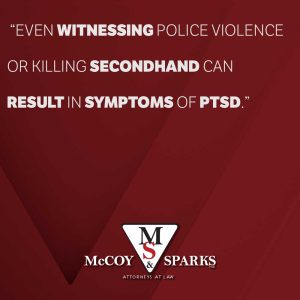
What makes trauma from police brutality unique is it represents a betrayal of trust by an institution meant to ensure justice and protection.
Adding to this is how police violence is often random, unprovoked, and involves excessive force. Victims and witnesses are left terrified at the prospect of violence they have no control over, unable to make sense of why they or their community, culture, or society were targeted.
Police officers represent an inescapable authority presence, meaning victims cannot avoid encounters or memories associated with their traumatic event.
All these factors contribute to why trauma from police violence runs so deep in affected individuals and communities. The resulting PTSD is complex, severe, and collective in nature.
Healing After Police Brutality Trauma
Recovering from trauma from such an incident presents challenges, especially when accountability for the police officers involved is lacking. But there are ways for victims, witnesses, and affected communities to start the healing process after a life threatening encounter.
Seeking help for poor mental health is crucial – speaking with a therapist or counselor can provide solidarity and coping strategies, and help make meaning from traumatic events. Community-based support groups may also help victims feel less isolated in their experience of what happened.
Self-care is also vital – making time for activities like exercise, creativity, spirituality, family, or community connections helps mitigate traumatic stress. Justice campaigns combined with wellness practices allow for both activism and sustainable health.
While the trauma inflicted by police departments runs deep, help and hope are available. Though the road is long, we must support victims however we can while continuing to push for accountability, transparency, and an end to excessive police force against civilians and all Black lives. Our communities deserve to feel safe from harm, especially at the hands of those meant to protect them.
Can I Sue For Emotional Trauma From Brutality by a Police Officer?
Being the victim of police violence can be an extremely traumatic experience, leaving scars long after physical wounds have healed. The use of excessive force by those sworn to serve the public represents a shocking betrayal of trust. In the aftermath, many victims are left asking – can I sue for the emotional damage caused by police brutality in Kentucky?
The short answer is yes, you can pursue compensation for psychological harm resulting from police misconduct in Kentucky. While legal action cannot erase the pain inflicted, holding those responsible accountable can aid healing and prevent future abuses of power.
To successfully win damages against a police department or officers, certain criteria must be met. You must be able to show that the officer’s conduct was extreme, reckless, or outrageous beyond tolerability. Things like intimidation, humiliation, and offensiveness generally do not meet this high bar on their own.
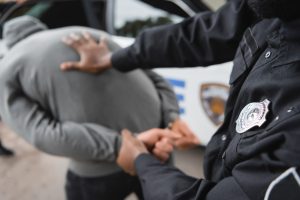
Your resulting trauma also must be proved to be severe – a reasonable person would be unable to endure the distress under the circumstances. Evidence like needing therapy, being diagnosed with PTSD, or suffering physical symptoms related to stress helps demonstrate substantial harm occurred.
Additionally, you must establish that the officer intentionally or recklessly caused the damage, knowing their actions were likely to cause distress. Or that they abused their position of power over members of society in an intolerable way.
With the help of an experienced personal injury attorney, victims of police officer misconduct can pursue just compensation through civil lawsuits in Kentucky. Though a difficult process, taking legal action can not only gain recovery for suffering, but also bring meaningful reform to policing. Your trauma can be translated into purpose.
If you or a loved one has become an innocent victim of excessive force in KY, know that options exist to find justice. Though the trauma can feel isolating, legal help is available. Don’t suffer in silence – take the first step toward rightful compensation and closure for you, your family, and your friends today.
Can I Charge the Police with Wrongful Death?
Here is a paragraph answering the question “Can I file for wrongful death from police brutality in Kentucky?”:
Yes, the family members of someone who has died as the result of excessive police force can pursue a wrongful death lawsuit in Kentucky. For example, if a police officer’s clearly excessive actions result in killing a civilian, the victim’s spouse, children, or parents may have grounds to take legal action against the officer(s) and department. With the help of a skilled personal injury attorney, damages can be sought for grief, suffering, lost income, burial costs, loss of companionship, and other hardships now faced without their loved one. Though no settlement can restore a lost life, holding police accountable for deadly brutality through civil action can gain some justice and closure for families. In Kentucky and elsewhere, laws exist to allow families to fight for the truth and receive rightful compensation after tragic and needless deaths from police violence. Consultation with a legal team can advise if a wrongful death suit based on unlawful police force is warranted. Your attorney can help uncover body camera footage to better back your claim.
Trust McCoy & Sparks with Sensitive and Challenging Cases
The trauma inflicted by police brutality is severe, complex, and collective, and lasts much longer than a moment. Recovery is challenging, especially when officers act with impunity. But victims and communities can heal through solidarity, advocacy, and mental health support. Most crucially, the law provides a means of holding police accountable, making an example, and seeking just compensation for the grievous harms inflicted through excessive force.
If you or a family member has suffered an incident at the hands of police, understand that legal options exist to take a stand for what happened. At the law offices of McCoy and Sparks, our team of dedicated attorneys has over 20 years of experience helping victims of police misconduct recover damages, find closure, and demand change.
Don’t carry this burden alone – call 844-459-9467 today to talk with us and schedule a free consultation. Our client-focused approach and proven track record of results have the benefit of helping you translate the trauma in your life into purpose.

